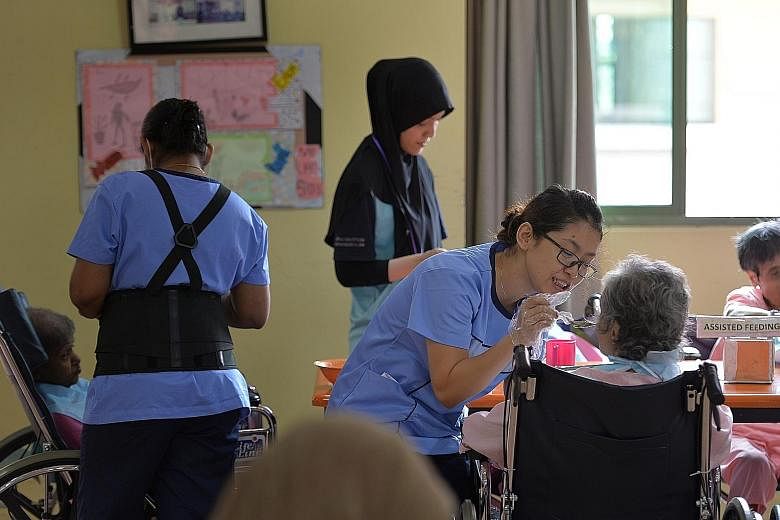Slow, dependent or independent - this is how Jamiyah Nursing Home groups its 185 residents at mealtimes.
Slow eaters are clustered together so one staff member can feed more than one resident at the same time. While one chews, another slow eater can be fed.
"We have redesigned work processes for showering, feeding and serving medication to save staff time by up to 20 per cent," said Ms Lai Foong Lian, the home's head.
The nursing home has also been able to save six hours of a nurse's time daily by outsourcing the packing of medication to a pharmacy.
Towels and toiletries are placed on trolleys right next to the shower area, so staff do not need to leave residents in the area when they go to fetch towels, which was the case in the past.
Such efforts may seem insignificant but every minute counts for the home, which faces manpower issues. Most of its 77 care staff have worked there for less than a year. Their starting pay is $470, excluding a $400 housing allowance.
Besides its high attrition rate, 85 per cent of its care staff are foreigners, mainly from the Philippines, Myanmar and India. There may be language barriers between the residents and these staff who do not speak local dialects.
"Care will thus be compromised," said Ms Lai, speaking in general about such barriers.
"Let's say the resident keeps saying, 'I want warm water', but you don't understand and so you just walk past. If straightaway you had heard and understood, you would immediately attend to it."
Foreign workers may also be unfamiliar with English and misunderstand important instructions from doctors, said Dr Ian Leong, who heads the continuing and community care department at Tan Tock Seng Hospital.
"They will always agree with you, but you are not very sure whether this is because they understand you or they are just being polite."
Janice Tai


